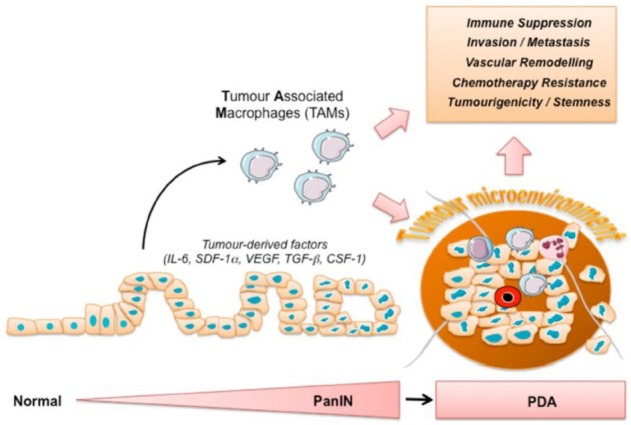Fig. 1. Infiltration of macrophages promotes pancreatic cancer disease progression. The infiltration of leukocytes, including macrophages, occurs around the lowest grade of pre-invasive pancreatic cancer lesions (PanIN) and persists through the invasive phase (PDA). Macrophages are initially recruited to the site of tumour formation in response to chemotactic factors secreted by pancreatic cancer cells. Tumour educated macrophages promote tumour progression by suppressing an anti-tumour immune response, stimulating vascularization, invasion, metastasis, and increasing the tumorigenicity of cancer cells. Together with other stromal cells including fibroblasts, stellate cells, lymphocytes, and myeloid progenitor cells, macrophages generate an excessive tumour microenvironment during PDA. The inflammatory tumour microenvironment fosters the further recruitment of macrophages, facilitates PDA progression, and is thought to blunt the response to chemotherapy.

